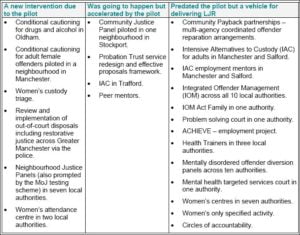What will PCCs do?
There’s been plenty of discussion in the media recently about Police and Crime Commissioners who are to be elected on 15 November and will be “accountable for how crime is tackled in their police force areas.”
Very little of the coverage has been positive.
Most of it has focused on public apathy and the very real concern that most people neither know about them, nor care.
Even though the Home Office is planning a public awareness campaign after the Olympics, the most optimistic speakers at last week’s @crestadvisory’s event were hoping for just a 20% turnout.
The most enjoyable thing about attending the Crest advent (where about half the delegates were PCC candidates) was the opportunity to have some proper discussion about the role of the PCC.
The role of commissioner
I’m particularly interested in the function of PCCs which is enshrined in their job title – commissioning.
The new Act gives PCCs the power to “commission policing services from the chief constable (or other providers)”.
So far the discussion about commissioning has centred around police privatisation with a number of Labour candidates promising to stand on an anti- privatisation ticket, while Nick Herbert, the policing Minister, says they can’t.
Although it’s unreasonable to ask PCCs to be actively involved in the actual commissioning processes, it does seem right that they actively lead and shape a discussion about how best to address local crime and anti-social behaviour problems.
Professor Martin Innes gave a very helpful presentation on how rapid but robust research can help underpin effective responses to crime.
He described most police forces as being “information rich but knowledge poor”.
Even more tellingly, he painted a picture of how the hierarchical nature of the police force tends to award promotions to those who pilot new schemes and initiatives. The commitment and creativity are to be welcomed, but in practice many schemes are “doomed to succeed” and not properly evaluated to see if they truly achieve what they claim.
Policy-based evidence is much more common than evidence-based policy.
As soon as PCCs are elected (and in many cases well before), they will be surrounded by Chief Constables, Community Safety Leaders, large private sector providers and Special Interest Groups all keen to persuade them which courses of action to adopt.
In reality, PCCs will have very limited influence in their first year in office – their policing plan has to be signed off within a month of their election.
However, their influence in ensuing years could be substantial.
The three keys to good commissioning
In order to make good commissioning decisions, PCCs will need three key factors in place:
- They will need independent academic advice on what has worked internationally and at home in addressing key issues
- They will need a robust and trusting relationship with their Chief Constable based on mutual respect to allow an honest (sometimes private) assessment of strengths and weaknesses.
- They will need to communicate the reasons for their decisions, not just to the public who will decide to re-elect them but also to everyone who works on the local criminal justice front-line – police and probation officers, and all those involved in community safety work in the statutory, voluntary and private sectors.
Either that – or reach for the BatPhone.

If you’re interested in Police and Crime Commissioners, I am curating much of the online debate at my Scoopit! page:








2 Responses
Very thoughtful article and résumé of the meeting. The only bone of contention I still have about ‘independent academic advice’ is that universities are not quite as independent as they perhaps like to think, and the research evidence is rather patchy and often wrong – I’ve noticed a significant level of politicization of criminology since the 1980s I guess as departments chase government funding. Particularly in relation to drugs where I would say the degree of decriminalisation bias is scandalous. Look forward to debating this further at some point!
PS I think I patched things up with Martin – mates for life!